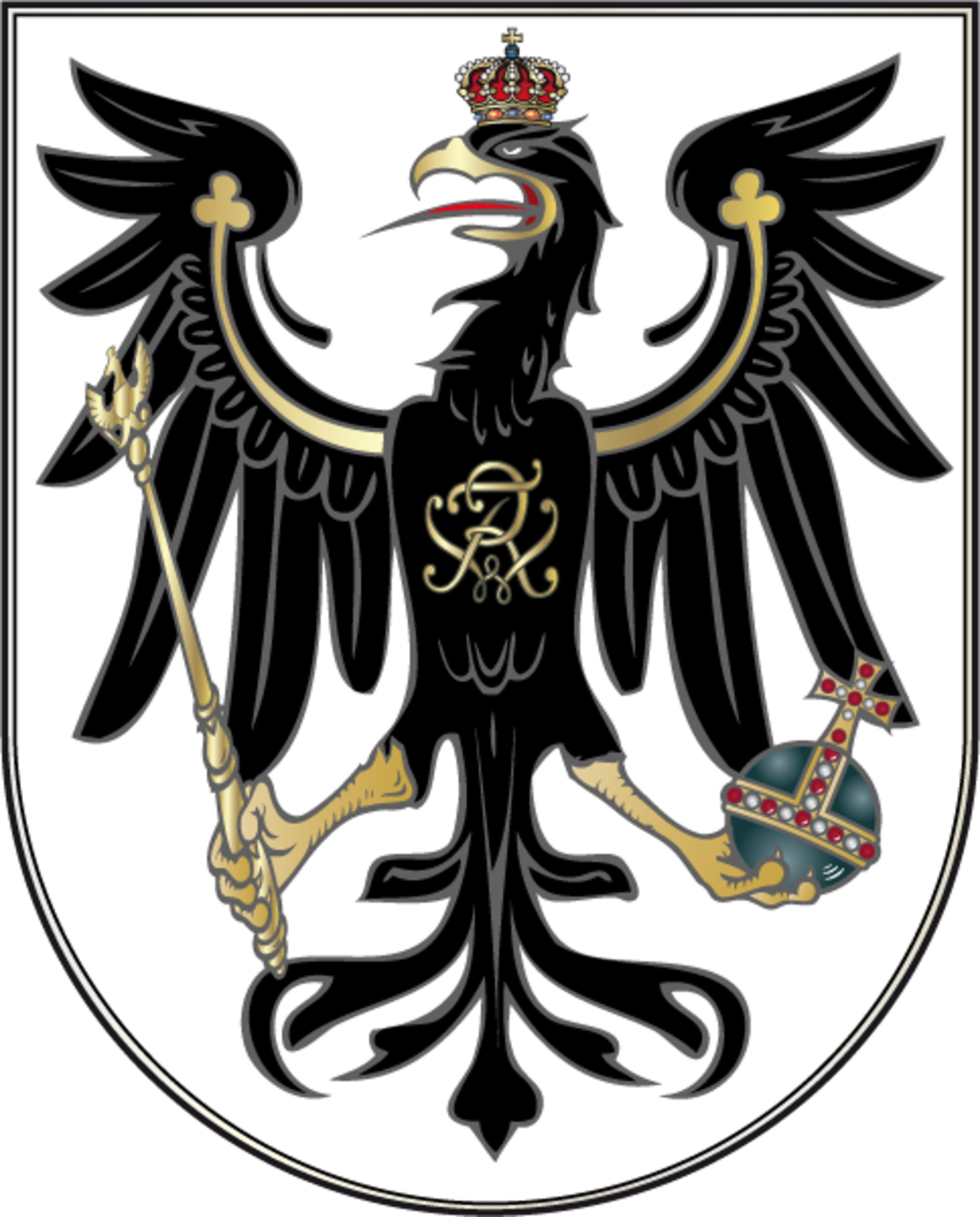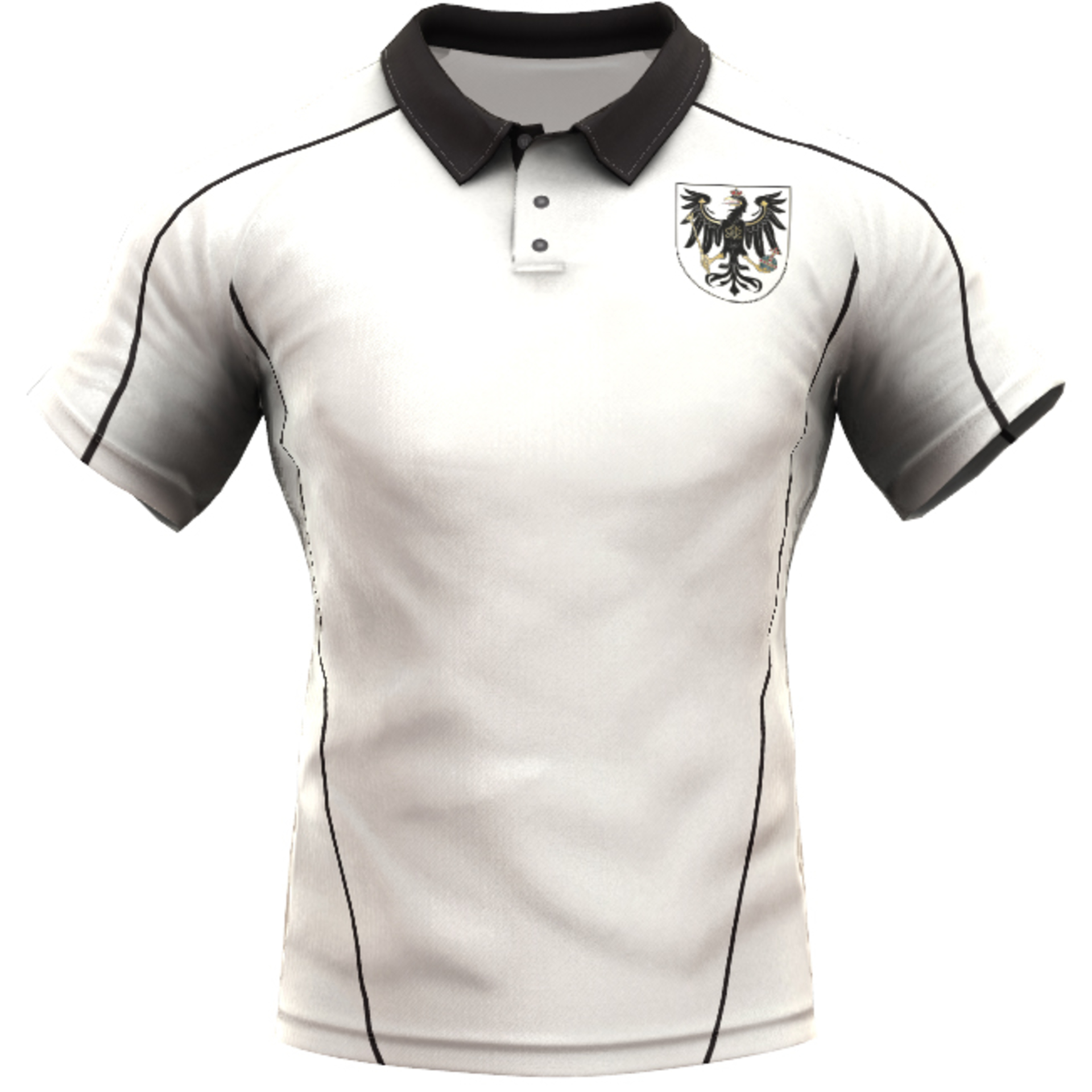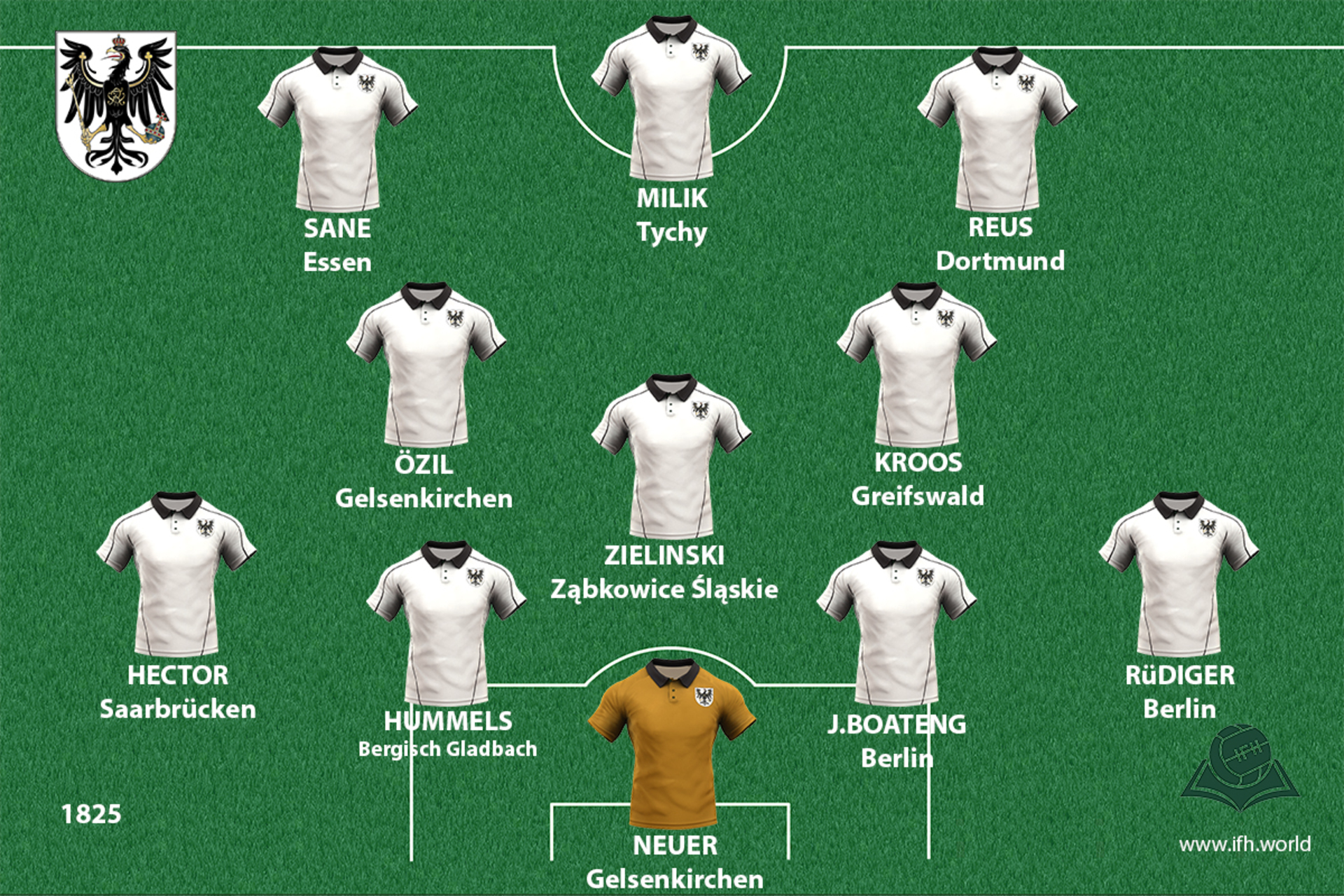Kingdom of Prussia
On the ruins of the dissolved Holy Roman Empire (1806), the German Confederation (Deutscher Bund) was created. In it, Prussia and the Habsburgs would fight for supremacy, since the Austrian Hereditary Lands (i.e. the western part of the Austrian Empire) were within the Confederation.

Coat of arms

Shirt
| Position | First name | Last name | Mjesto rođenja | Like | Dislike | |
|---|---|---|---|---|---|---|
| GK | Kevin | TRAPP | Merzig |
1 |
0 |
|
| GK | Manuel | NEUER | Gelsenkirchen |
26 |
7 |
|
| DC | Joel | MATIP | Bochum |
1 |
2 |
|
| DC | Kamil | GLIK | Jastrzębie Zdrój |
11 |
0 |
|
| DC | Mats | HUMMELS | Bergisch Gladbach |
11 |
1 |
|
| DRC | Antonio | RUDIGER | Berlin |
3 |
1 |
|
| DRC | Jerome | BOATENG | Berlin |
6 |
5 |
|
| DRLC | Benedikt | HÖWEDES | Haltern |
6 |
0 |
|
| DR | Benjamin | HENRICHS | Cologne |
6 |
2 |
|
| DR | Felix | PASSLACK | Bottrop |
2 |
1 |
|
| DL | Jonas | HECTOR | Saarbrücken |
8 |
1 |
|
| DL/MLC | Yannick | GERHARDT | Würselen |
2 |
1 |
|
| DMC | Christoph | KRAMER | Solingen |
3 |
1 |
|
| DMC | Grzegorz | KRYCHOWIAK | Gryfice |
8 |
4 |
|
| DMC | Piotr | ZIELINSKI | Ząbkowice Śląskie |
10 |
2 |
|
| MC | Ilkay | GÜNDOGAN | Gelsenkirchen |
9 |
0 |
|
| MC | Leon | GÖRETZKA | Bochum |
11 |
0 |
|
| MC | Toni | KROOS | Greifswald |
14 |
1 |
|
| MRLC | Gonzalo | CASTRO | Wuppertal |
1 |
0 |
|
| AMRLC | Julian | DRAXLER | Gladbeck |
16 |
3 |
|
| AMRLC | Kevin | KAMPL | Solingen |
3 |
0 |
|
| AMRLC | Leroy | SANE | Essen |
9 |
1 |
|
| AMRLC | Max | MEYER | Oberhausen |
1 |
0 |
|
| AMRLC | Mesut | ÖZIL | Gelsenkirchen |
16 |
4 |
|
| AMRL | Amin | YOUNES | Düsseldorf |
2 |
1 |
|
| AMRL | Karim | BELLARABI | Berlin |
1 |
0 |
|
| AMRL | Marco | REUS | Dortmund |
26 |
1 |
|
| AMRL/SS | Gökhan | TöRE | Cologne |
1 |
0 |
|
| SS/FC | Lukas | PODOLSKI | Gliwice |
12 |
1 |
|
| FRLC | Arkadiusz | MILIK | Tychy |
15 |
3 |
|
| FC | Maximilian | PHILLIPP | Berlin |
3 |
6 |
(Today: parts of eastern, northern and western Germany, parts of Silesia in Poland)
The members of the Confederation were more or less independent and their number was significantly lower when compared to the period of the Holy Roman Empire. It was a country focused on defense and economy, with a Federal Assembly in Frankfurt, presided by Austria. Common fear of French ideas held Austria and Prussia together in the next following decades. Prussia’s contribution in Napoleon’s defeat was rewarded at the Vienna Congress when it received parts of Saxony and Rhineland.
Prussian minister von Stein appealed to poets and writers to contribute to the creation of an image of a united nation after the banishment of the French, leading to German political nationalism. Still, the geographic form of this German nation was undefined: on the territory of the former Empire, only 25% spoke German, while Prussia itself was a kingdom in which at least six languages were spoken, aside from German. The regions where German was spoken were divided by political and dialectical differences, religion and a history of animosity dating back to the Thirty Years’ War. Since Prussia and Austria had parts of their territories that weren’t part of the German Confederation, the later attempts to create a national German country would be made even more difficult.
Sources
- Felipe FERNANDEZ-ARMESTO, Narodi Europe, Zagreb, 1997.
- Patrick GEARY, Mit o nacijama – Srednjovjekovno poreklo Europe, Novi Sad, 2007.
- Miran MARELJA, ''Međunarodni odnosi Prusije od Bečkog kongresa do ujedinjenja Njemačke (1815. - 1871.)'', Pravnik, 45/2012., br.91
- Alan John Percivale TAYLOR, Habsburška monarhija: 1809-1918., Zagreb, 1990.
- Grb https://en.wikipedia.org/wiki/Coat_of_arms_of_Prussia
